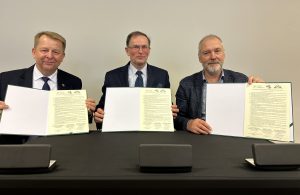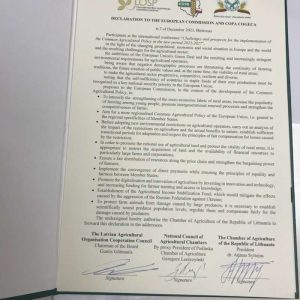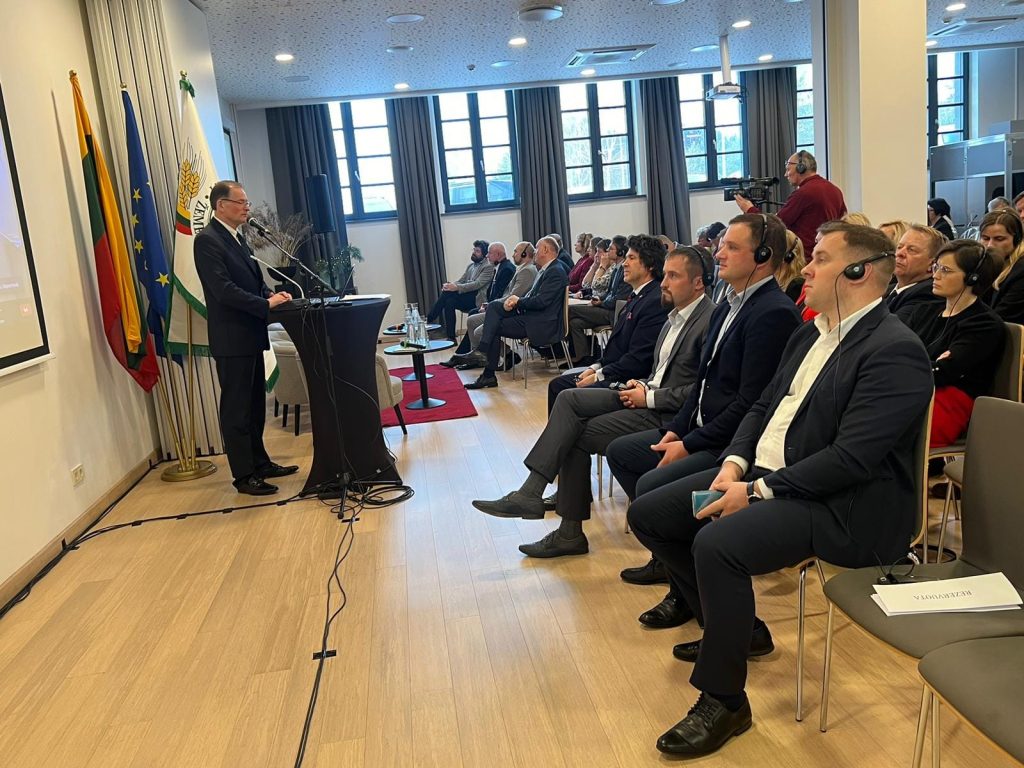On 6 December, the Chamber of Agriculture of the Republic of Lithuania (LAC) organized an international conference “Challenges and Prospects for the Implementation of the Common Agricultural Policy in the New 2023-2027 Period”, which was attended not only by Lithuanian farmers, leaders of farmers’ self-government and agri-policy makers, but also by partners from abroad – the Latvian Agricultural Organization Cooperation Council (Lauksaimniecības organizāciju sadarbības padome), the leaders of the Polish Chamber of Agriculture and the Polish Federation of Cattle Breeders’ and Dairy Producers’ Associations.
Janusz Wojciechowski: we need to strengthen the chain of family farms
Janusz Wojciechowski, the European Commission’s Commissioner for Agriculture and Rural Development, was unable to attend due to a busy agenda, but greeted the conference participants online. In his speech, he noted that Lithuanian farmers stand out for their activism and their commitment to fight for a vibrant countryside. He also called for a united front and a focus on 4 key principles – security, stability, sustainability and solidarity.
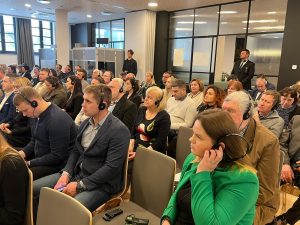
Mr. Wojciechowski acknowledged that food security across the EU has faced a number of challenges in recent years: the COVID pandemic, Russia’s war against Ukraine, the devastating effects of climate change, etc. Economic and political stability in agriculture is equally important.
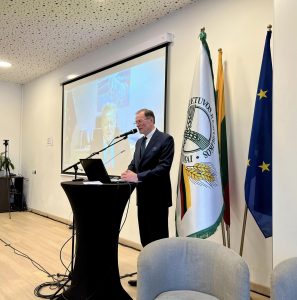
“We must recognize that CAP funding should continue beyond 2027, with a reinforced budget that responds to the challenges of agriculture and is tailored to the objectives set, because food production depends on farmers. However, between 2010 and 2020, we lost 3 million farms in the EU, down from 12 to 9 million. This equates to around 800 farms disappearing every day. This alone highlights the social challenges facing our farmers and rural communities. I firmly believe that we need to strengthen support for small and medium-sized family farms, combating excessive land concentration, while at the same time introducing a binding ceiling that includes a reduction in direct payments for the largest beneficiaries” – said Mr. Wojciechowski, noting that agriculture has another important task – ensuring generational change in the countryside.
According to Commissioner, generational renewal is a fundamental challenge facing agriculture today. “We cannot ensure a secure food supply without a stable farming community supported by a stable income. We must focus on the economic viability of farms: farmers must earn a decent living from working the land,” he assured.
Asked for hope through concrete measures
Vytenis Grigas, a representative of the Lithuanian Young Farmers and Youth Union (LYFYU), who is also setting up his own berry farm, reacted to the Commissioner’s speech and asked what real instruments the European Parliament foresees in order to encourage young farmers to link their future with agribusiness: “What measures do you foresee to support young farmers, because, I admit, we need hope?”, V. Grigas asked the Commissioner.
Commissioner for Agriculture, Janusz Wojciechowski, assured that more than 10% of EU direct payments, the plans provide for more than 370 000 young farmers to work in agriculture. The plans also include more support for farmers facing specific difficulties and for women farmers.
Changes to the Strategic Plan
There has also been a lot of discussion about the Green Deal, which is viewed by farmers in a mixed light. How we are progressing towards the Green Deal and a greener future, which measures have been successful and where changes are needed, was presented by the Vice-Minister of the Ministry of Agriculture Egidijus Giedraitis. According to him, 31% of the Strategic Plan funds are earmarked for environmental, climate and sustainable farming objectives. The funds amount to €1,290 million (31%), of which about €753 million for direct payments and sectoral programmes and about €537 million for rural development interventions.
The challenges of organic farming
The conference featured a wide-ranging discussion on the prospects for organic farming not only in Lithuania, but also in Latvia and Poland. In our country, the area under organic farming in Lithuania will decrease by about 6% in 2023. Giedraitis said that Lithuania is becoming an organic grain exporting country and should not only focus on grain farming. However, he did not doubt that the market is very important for organic development.
The leader of the Chamber of Agriculture in Podliaska, Grzegorz Leszczyński, who participated in the expert discussion, noticed that the consumption of organic products in Poland is growing slightly, as consumers are increasingly looking for healthy, locally grown food. However, work needs to be done to improve the short food supply chain. We should also invest more in organic production for health reasons. If more attention were paid to healthier production, the state would save a lot on health care – people would get sick less often”, G. Leszczyński assured.
Dzintra Lejniece, a member of the Latvian Council of Agricultural Organizations (LOSP), echoed him. According to her, consumers often support organic production only in words, but the real “vote” is in monetary terms. “Customers would certainly like to be more supportive of organic farmers, but they are not in a position to buy such goods. I also represent pig farmers in Latvia. Some farms would like to invest in organic, but the investment in organic pig farming is very high. Farms cannot afford it,” said LOSP representative D. Lejniece.
Focus not only on agriculture, but also on regional vitality
The conference discussed not only land and forestry, but also rural development. The report “Village – more than agriculture” was read by Helena Naglazienė, chairperson of the Network of Local Activity Groups. According to her, the Local Activity Groups network suggests looking for opportunities to more proportionately balance the support of the Strategic Plan measures and to pay more attention not to agricultural businesses, but to cooperation and partnership between business and the non-governmental sector. H. Naglazienė hoped that politicians taking decisions and making commitments to build a sustainable future for the state would understand and responsibly assess that without the village, which is more than agriculture, the strong foundations of the state cannot be built.
Young farmers are extremely active
The international conference was attended by a particularly large number of representatives of the Lithuanian Union of Young Farmers and Youth. The Union’s representative, V. Grigas, assured that such conferences and discussions, involving representatives of Lithuanian and other national Chambers of Agriculture, farmers and association leaders, are a way to discuss the necessary changes and strategies in the CAP, one of the main tools to achieve the objectives of the European Green Deal. The conference tried to find ways for farmers and politicians to reconcile their common goals, so that both farmers can survive successfully on the market, but also be able to expand in a way that respects the environment and responds to the needs of customers. “This conference allows us to hear each other out and find common solutions. Because we are usually caught up in the routine of our work, and we rarely find time to talk about strategic plans and actions,” said V. Grigas.
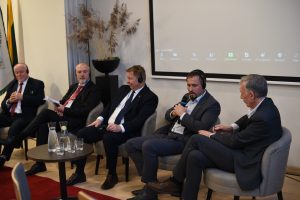
Signed a memorandum
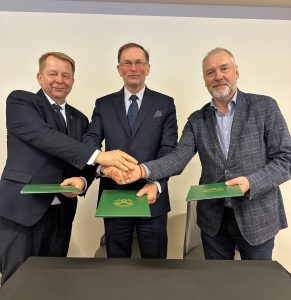
On 7 December, after the conference, all three parties signed a memorandum which will be handed over to the authorities of each country, the European Commission and Copa-Cogeca organizations.
